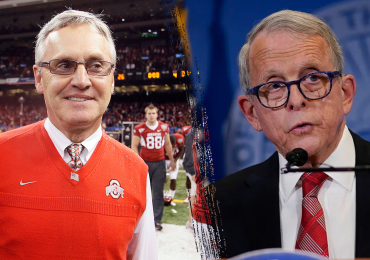There are few things more nauseating in life than injustice, and while there are far more important iniquities in the world that have greater bearing on people’s lives than anything inside our motorsports bubble, there are too many times when the matrix goes awry, the picture is distorted and drivers, teams or designers are robbed of their due.

For example, take Vintage Motorsport’s cover star for our latest issue, Peter Revson. As a media outlet, it’s sad to admit that folks in our line of business were largely to blame for his talent being perennially undervalued. Search for stories or footage that includes Revson and in the opening sentence or two you’ll likely find some reference to his family’s prosperity. At best it was cliché-ridden journalism; at worst it came across as a slur from inverted snobs. Either way, it lazily suggested Revson’s background defined him. Well, it did… but not in the manner implied.
Just as actors and actresses with model looks can struggle to be taken seriously in their chosen occupation, so racing drivers with family wealth can often suffer “rich kid” tags that, intentionally or not, suggest that he or she is in the game for the glamor of it. “Revvie” was emphatically not playing at racing: yes, he came from big money, but he willingly, willfully, shunned that to make it to the top on merit. He worked hard to improve himself – and succeeded. When he perished at the age of 35, he was one of Formula 1’s aces, perhaps a potential world champion. Our story this month should convince you.

While Revson was underrated because of wealth, Frank Williams was overlooked until acquiring wealth. Nothing – certainly not Jacques Laffite’s highly fortunate runner-up finish at the German Grand Prix in 1975 – could have prompted anyone to predict that Sir Frank (as he was to become in 1999) had the potential to build an F1 powerhouse. Yet once he had adequate funding, it took just 18 months for Williams Grand Prix Engineering team to win races, and an even shorter timeline to convert that to title glory.
Our story covers that sharp rise to the pinnacle and how Frank, Patrick Head, Alan Jones, Carlos Reutemann and Keke Rosberg ensured that mountain became a mesa.

The reason Ted Horn is underappreciated is simpler to explain, but no more logical: he failed to win the Indianapolis 500, and due to the status of that race, his three National (Indy car) championships and 24 wins at other – arguably more demanding – venues can’t make up for that. His nine consecutive finishes in the top four at Indy remain a record, and more than suggest that only ill fortune robbed him of the chance to add his name and face to the Borg-Warner Trophy. As it is, Horn is consigned forever to the ranks of the “brilliant but unlucky at Indy” drivers, along with Rex Mays and Michael Andretti, and is therefore less well known than some drivers of half his ability.

Elliott Forbes-Robinson – a name seemingly plucked from the pages of Wodehouse – is another fine racer whose talent was perhaps underappreciated by the public, but was well known among the many folks who hired him. Perhaps the problem was that EF-R was too self-effacing – an attractive personal quality that nevertheless can undermine a racing career. Maybe his versatility meant he flitted between series too often to become a pillar of any one discipline. But as the man himself points out in our interview, racing was work as well as pleasure and he needed to put food on the table. Then again, possibly the biggest barrier to Forbes-Robinson becoming a household name is that his career was somewhat upside down – his biggest successes came in his mid-50s!

Speaking of versatile drivers, we lost one of the best – perhaps the greatest of all – since our last issue. Our Parnelli Jones obituary tries to pack in everything this man achieved, but we could have filled four pages just with a dry list of his accomplishments.

Adding to the sad tone of the early pages in this issue – but aptly sited in an edition celebrating the underrated – is an obituary for Wally Dallenbach. He’s well known as CART’s even-handed and consistent racing steward for 20 years, and as one of the instigators of Indy car racing’s still superb Safety Team. But in our tribute, we were keen to point out just how fine a racer Wally was.

Elsewhere in the issue, we take a look back at NASCAR’s dramatic (for good and bad reasons) 1994 season, we report from the Grand Prix de Monaco Historique, look ahead to the Rolex Monterey Motorsports Reunion and discover what F1 and sports car racer John Watson regards as his favorite race.

The Aug/Sept 2024 issue of Vintage Motorsport is now mailing to subscribers and is already available to read in digital format. We hope you enjoy it. And if you’re not a subscriber, you can go to VintageMotorsport.com/Subscribe or call (877) 425-4103. Single copies can be purchased at our online store HERE. Vintage Motorsport magazine is also available at Barnes & Noble bookstores nationwide.









